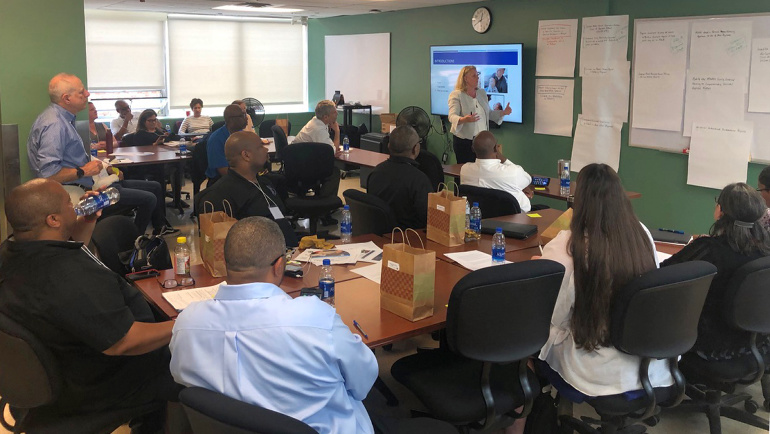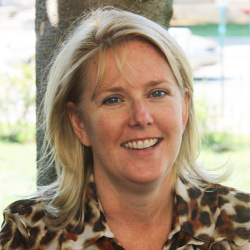
Children can reap great benefits when their fathers are involved. Research shows improved social-emotional and cognitive development in young children when fathers are a regular part of their lives.
But some Michigan laws and policies make it difficult for fathers — especially low-income fathers — to stay connected to their children. Child support debt, for example, can invoke severe punishment — even incarceration — that restricts a non-custodial father’s right to visit his children.
Carolyn Dayton, Ph.D., an associate professor in the Wayne State University School of Social Work and the associate director of Merrill Palmer Skillman Institute’s Infant Mental Health Program, would like to change that. This past summer, Dayton and colleagues from the University of Michigan organized a Fatherhood Policy Forum to identify Michigan policies and laws that keep fathers from remaining active in the lives of their children.

“We invited stakeholders from throughout Detroit who want to promote fathers’ involvement with their families,” Dayton said.
The 40 participants included researchers from several universities, lawyers and court officials, directors of fatherhood intervention programs, and fathers who received supportive services from fatherhood programs. Billed as an “action-oriented meeting,” participants prepped beforehand to make the meeting more productive.
“Everyone wrote answers to core questions a few weeks before the forum, to start thinking about policy obstacles and alternative ideas,” Dayton said. “Then we all joined forces to develop, revise and enhance father-friendly policies.”
One idea was to forgive a portion of child support debt for fathers who participate in workforce development or parent training programs. Other ideas included the establishment of a state-level commission to coordinate fatherhood initiatives across the state, and using social and electronic media to implement early paternity education programs for unmarried and expectant mothers and fathers. Follow-up meetings will refine the ideas and determine next steps toward change.
“I am passionate about helping dads be more central in their children’s care,” Dayton said. “Babies are biologically primed to connect with both parents. Fathers shouldn’t be left out.”
If you are a stakeholder and interested in sharing ideas, please contact Dayton at carolyn.dayton@wayne.edu. The forum is a collaboration with the advisory group of the Michigan Action Plan for Father Involvement, tasked with achieving greater inclusivity for fathers.
This story originally appeared in the fall 2019 edition of Imprints.
